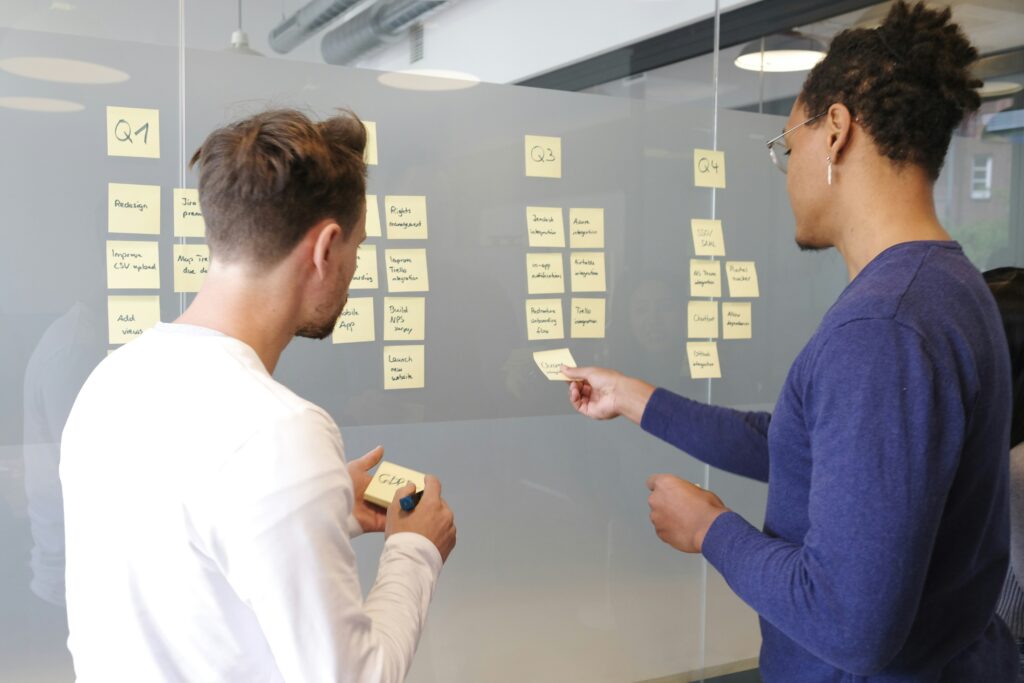You’ve carefully curated your product management career trajectory. You’re a full-grown professional with valuable life experience. You know what makes a great product manager and you’ve carefully studied product management strategies and insights from industry thought leaders. But there’s one group of product management gurus you’ve overlooked: Kids! Many adults will humbly admit that kids can teach us so much about life, like how to slow down and enjoy a moment, how to find beauty in simplicity, and just how loud mom can yell when she really makes an effort. Truth be told, there’s a vast amount of knowledge to be gained from kids on the product management side of things, too. Here are 12 valuable lessons kids can teach you about being a better product manager.
Product Manager Lesson #1: Be curious.
Kids are naturally curious. Spend five minutes around one and the barrage of questions will literally make your head spin. They want to know how things work and why they work that way. As a product manager, you’ve got to rekindle that long-suppressed desire to know everything about everything and really get to the heart of who, what, when, where, and why.
Lesson 2: Don’t get stuck in the past.
Kids aren’t stuck in the past. How could they be? Their past consists of the peanut butter and jelly sandwich they ate for lunch. As a result, they don’t get tangled up in the dangerous “this is how we’ve always done things” creativity killers. Sure, product managers should look to the past to learn from past product failures, but not to create a narrow view of the future.
Lesson 3: Find creative solutions.
Being a kid is a tough job. They have no personal experience to fall back on. And despite the fact that adults were once kids, too, it’s sometimes hard to help because most of us have forgotten what it’s really like to be a kid. Yet, kids bravely tackle challenges by immediately seeking creative solutions that aren’t bogged down by rules.
Tweet This:
“Product managers, take a cue from kids! Seek creative solutions and don’t be afraid to fail.”
The solutions don’t always make sense to adults and, yes, the solutions might even defy logic and gravity or break a few basic safety rules, but they are nothing if not creative. Kids take their ideas and run with them full throttle. Product managers don’t have quite the same level of creative freedom, but you should still be brave and flex those creative muscles.
Lesson 4: Don’t be afraid to fail.
Imagine if kids were afraid of failure. They’d never grow up. Kids learn to do almost everything by failing (or falling) first. And when they are very young, they aren’t embarrassed about failure either. What a blissful period of life. As they grow, they continue to build a skillset born of bruises and skinned knees.
Focused and determined, they keep trying until they get it right. Sitting up. Crawling. Walking. Running. Riding a bike. Holding a pencil. Writing their name for the first time, shaky letters floating across the page. The list goes on and on. Kids might cry real tears in a frustrated heap on the ground, but they get back up, dust themselves off, and try again. Be fearless in the face of failure (and of learning). You were once that child who looked failure and fear in the face and pushed forward to stand tall on wobbly legs.
Lesson 5: Observe the world.
Kids are keen observers. From an early age, they carefully watch and study the people and activities in their environment. First, it’s to create a blueprint for their own development; later it’s a form of espionage to hold adults accountable for the occasional salty word muttered during a hectic morning commute. Product managers need to practice this art of observation to understand how their people (aka product users) navigate their products.
Lesson 6: Leave your mark.
Kids are intrigued by the impact they have on the world around them. From moments as simple as walking through a puddle and leaving wet shoe prints on the sidewalk to more complex social situations like knocking over another kid on the playground and then seeing him or her cry, kids marvel at their own power to leave their mark. Product managers have the power to impact and change the world, too, in significant ways. Marvel in and take advantage of that opportunity. Be mystified by your ability to leave your mark.
Lesson 7: Get a little obsessed.
Dinosaurs. LEGOs. Captain Underpants. Kids can get really obsessed. And they like to talk about their obsessions ad nauseum. In the product world, you might call this process evangelizing an idea. Kids talk about and explore their latest obsessions with anyone and everyone who qualifies as a lifeform: you (even if you’re not in the same room, haven’t had coffee yet, are sleeping), cashiers, librarians, the neighbor’s dog. It really doesn’t matter who the idea is shared with. The point is to share the latest obsession with the entire world. If you’re a passionate product manager, this shouldn’t be a problem.
Lesson 8: Unify the masses.
In-laws, spouses, great aunts, and second cousins once removed don’t always see eye to eye on family matters, but despite sometimes complicated family dynamics, kids have a way of bringing everyone together. Think of the school play that runs a little long. Or a soccer game in the rain. If the kid is there, there’s no better reason for everyone else to be there too—unified and focused on the same goal. Relationships within companies can be similarly complex, and product managers have the power to bring everyone together, working towards a unified goal.
Lesson 9: Be optimistic.
Kids sometimes have a hard time taking no for answer. To kids, no almost always means maybe. This ability to see possibility, however remote, is key for product managers—especially when facing stakeholder pushback or an idea that just isn’t quite polished.
Lesson 10: Don’t limit yourself.
Give a kid an option or two, and she’ll think up three or four more on the spot. Kids are idea generators, and their creative minds aren’t limited by much of anything, which means ideas just spill out, often in the moment. Peel away constraints like common sense, hard-earned experience, and your collection of filters and internal sensors, and see what happens to your ability to think of new ideas on the spot.
Lesson 11: Never stop learning.
From birth onward, kids are students of life. They have to be for their own survival. But somewhere along the way we adults lose this sense of curiosity about the world around us and the insatiable drive to learn more. Once we establish ourselves as functional adults in the world, our pace of learning can slow down. Product managers need to resuscitate that hunger for knowledge and reawaken their craving for greater understanding.
Lesson 12: Make connections.
Last but not least in our product manager lessons, kids learn through connections and do best when interacting with others—parents, teachers, and friends. Product managers, too, do best when connecting and collaborating with others. Your ability to do your job effectively depends heavily on your ability to bring people and ideas together and move things forward.
Kids have a lot to teach adults about the fundamentals of product management. Put these 12 lessons to use and see what happens. And don’t forget: You were once a kid, too.

What valuable product manager lessons have kids taught you about product management? What other unexpected sources have been helpful throughout your product management journey? Share them in the comments!



